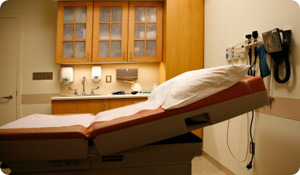
Probably the health screening test most Americans dread the most is the colonoscopy, but it's also one of the most important tests you can have to prevent colon cancer or to catch the disease at an early, curable stage. Embarrassment and worry over discomfort during the procedure are two reasons often cited about why people avoid the test. Now a new study is showing that drinking warm water before the procedure may help ease the discomfort associated with the procedure because it appears to relax the bowel.
A colonoscopy exam is performed by inserting a long, thin, flexible tube into the colon. The probe has a light attached at the end so the physician can view the entire colon and rectum on a screen to spot-and remove-growths or polyps. Because the colon must be completely clean for the test to be accurate, preparation for the exam generally includes drinking only fluids such as fruit juices, clear broth, and water and ingesting a liquid laxative the day before the test.
In a study conducted at the Sungkyunkwan University School of Medicine in Seoul, Korea, researchers compared the characteristics and pain levels of mostly male patients, averaging about 33 years old and generally of normal weight. The 64 study volunteers each drank warm, cold, or no water along with the standard sodium phosphate prep solution. Twenty-one of the volunteers in the warm-water group and 17 each in the cold and no water groups, had irritable bowel syndrome (IBS), a chronic condition of the lower intestinal tract that causes abdominal pain, bloating, and abnormal bowel movements. Although patients are usually sedated during a colonoscopy exam, the study volunteers agreed to have their procedures without sedation.
The study found that, as a whole, the warm water group, including those with IBS, experienced less pain both during the exam and two hours later than participants in the other two groups. They also required less time for insertion and withdrawal of the examination probe. More studies need to be done to determine how drinking warm water affects the bowel and whether it should be included in the general preparations for colonoscopies.
What You Need to Know About Colonoscopies
According to the American Cancer Society, colon screening should begin at age 50 unless you have a strong family history of colon cancer, in which case you should be screened ten years before the age at which the family member was first diagnosed with colon cancer. If you have a family history of colon cancer or if you are approaching age 50, talk to your doctor about what type of colon screening is best for you.





